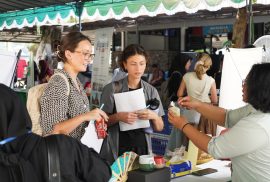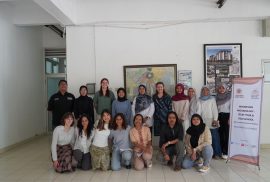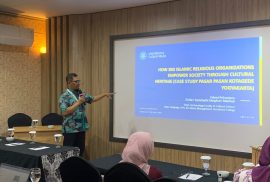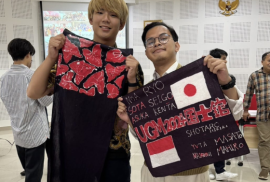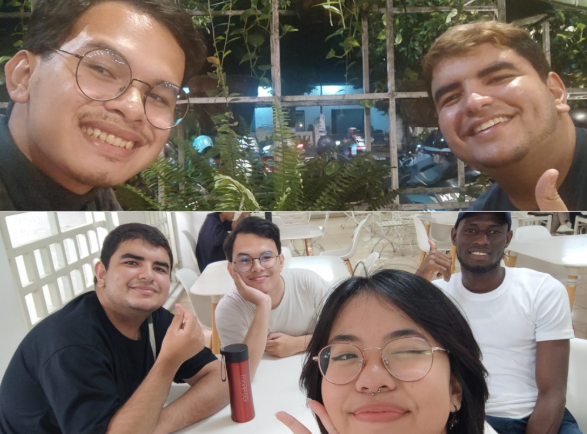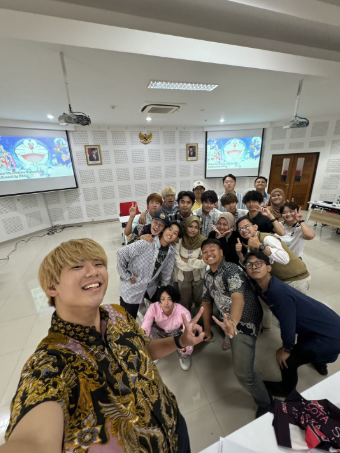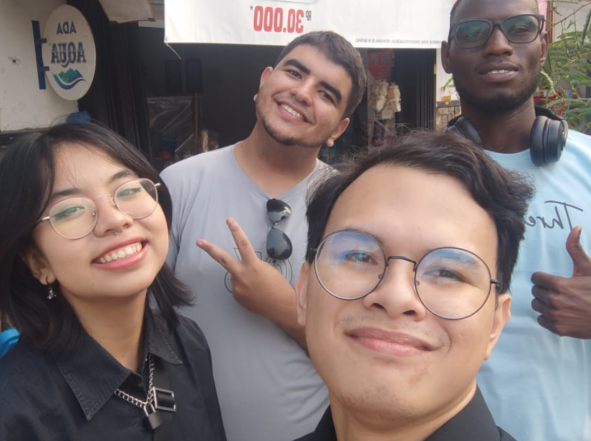Banjarmasin, October 5, 2025 — Three students from the Arabic Literature Program, Faculty of Cultural Sciences (FIB), Universitas Gadjah Mada, proudly represented UGM as delegates in the 18th National University Qur’an Recitation Competition (MTQMN XVIII), held at Lambung Mangkurat University, Banjarmasin, South Kalimantan.
The delegates were Muhammad Candra Solihin (Arabic Literature, Class of 2023, Contemporary Calligraphy Male category), Pandhita Hapsari (Arabic Literature, Class of 2023, Qur’anic Debate in Arabic), and Hasifa Zara (Arabic Literature, Class of 2024, Qur’anic Debate in Arabic). In addition, Muhammad Shofyyulloh (Cultural Anthropology 2023) as an official, also accompanied the group from UGM.
Before advancing to the national stage, the three students had to undergo a series of rigorous selection processes. These included internal selection at UGM, followed by an online pre-national selection involving hundreds of students from various universities across Indonesia, before finally being chosen as UGM’s official representatives.
The 18th MTQMN brought together around 1,500 students from universities throughout Indonesia, with the competition running over five days. The event featured an opening ceremony, preliminary rounds, final rounds, and a closing ceremony.
This prestigious competition aims to strengthen students’ Qur’anic character, nurturing a generation with noble character, academic excellence, and the ability to contribute to the nation.
UGM provided full support for its delegates, including regular training, academic guidance, and full facilitation of competition needs. Such support reflects the university’s commitment to fostering achievements while upholding UGM’s reputation on the national stage.
The participation of Arabic Literature students in categories such as Qur’anic debate in Arabic highlights the strong relevance between academic learning and competition. It not only sharpens language mastery but also broadens networks and strengthens the tradition of Islamic scholarship on campus.
[Public Relations of FIB UGM, Candra Solihin]


